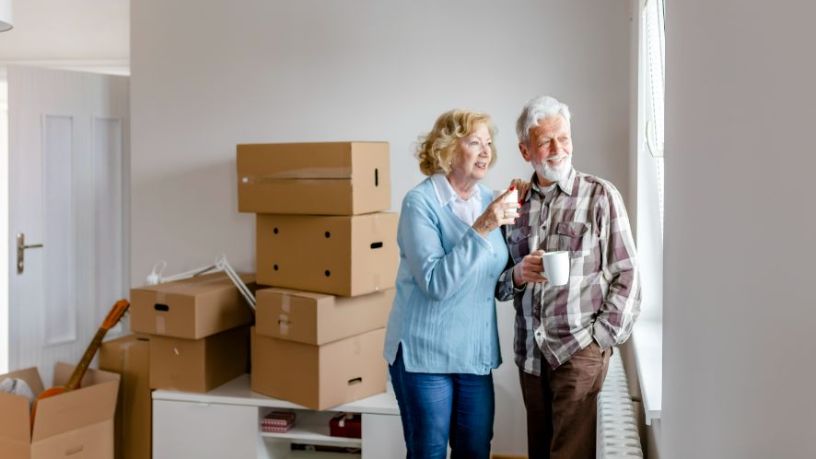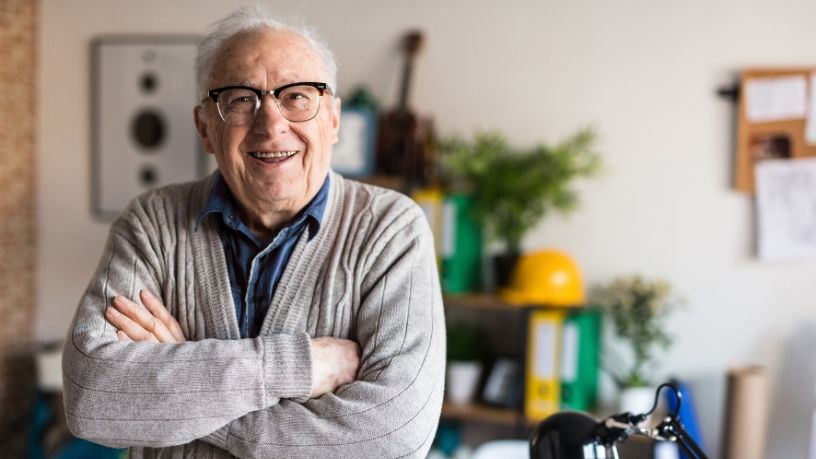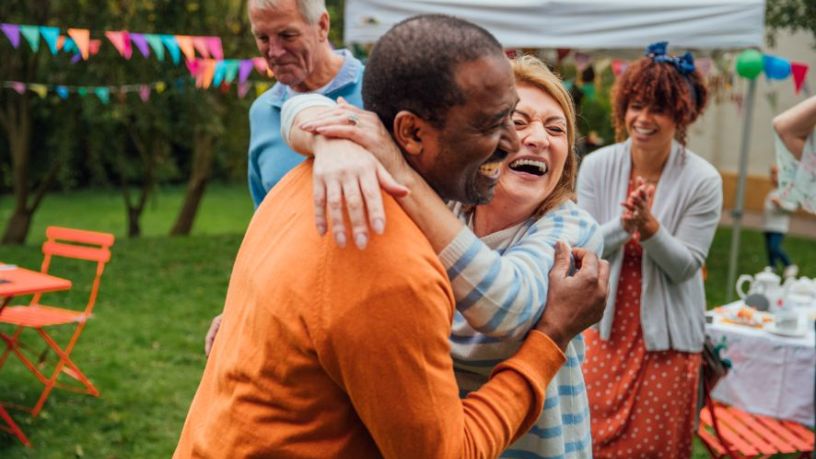Learn about the emotional effects of moving home.
Key takeaways
Discover why downsizing might be the right move.
Get handy tips for dealing with the transition.
Moving on from the family home can stir up a range of emotions. You might be sad to say goodbye, scared of change, excited for the next chapter or all of the above.
The family home is more than bricks and mortar. It’s held together by memories, milestones and special moments. It’s where birthday parties were held, rites of passage passed and little people became big.
Having an emotional connection to your home, particularly if you’ve lived there for many years, is normal.
But as you get older, your needs change. You might not require as much space anymore, or you might no longer have the energy to maintain a larger property.
A 2020 report by the Australian Housing and Urban Research Institute (AHURI) found that more than half of people over 55 are open to downsizing. If fact, 26% of households over 55-years-old already have, with the main factors pointing to lifestyle, financial and maintenance reasons.1
While sorting through a lifetime’s worth of belongings is no easy feat, most homeowners describe the overall experience of downsizing as positive, even liberating. Downsizers told the AHURI report that they spend less time and money on maintenance, have reduced housing costs, enjoy better locations and feel safer.
But how do you get past the emotional hurdles of leaving the family home? Here are some tips to get you moving.
Reduce stress by starting early
Moving house is stressful at any age, but it can be particularly daunting if you’ve lived in the same home for years.
If you start to declutter and decrease your belongings early, you’ll likely feel less stressed and more in control.
Start with the easiest room, the one that has the least emotional attachment to you.
This could be the laundry or guest bathroom. You might also limit your decluttering or packing to less than 2 hours a day to avoid feeling overwhelmed.
Downsizing is a big job, and you shouldn’t have to do it on your own. So, it’s a good idea to enlist the help of friends or family early on (or if your budget allows, a relocation expert).
Acknowledge your feelings of grief and sadness
No matter how confident you feel about downsizing, parting with property and possessions can be an emotional process.
You might also be moving away from a community you’ve been a part of for many years. Queue more emotion.
It’s important to acknowledge these feelings, which are entirely normal and valid. Be kind to yourself and allow yourself to go through the process of saying goodbye.
Coping with guilt from children
On top of your own feelings of grief and sadness, you might also be dealing with children who may make you feel guilty (often unknowingly) for leaving the family home. Even if they’re all grown up and moved out themselves, it’s normal for them to feel an emotional connection to the place they called home.
“Family dynamics can be complex and challenging, and everyone reacts to life changes differently.”
But remember, while moving is a process for your children too, your living needs are important. Communicating early and often with your children might help give everyone time to get used to the idea.
Are you in need of urgent support?
We've put together a list of services for free support that's relevant to where you live, and what you're going through.
Relish the memories
The idea of parting with precious belongings can bring up a range of emotions. But instead of looking at this as a moment of loss, why not take the time to relive and relish memories of a life well lived? Or better still, share those memories with your loved ones.
Your family might even have some ideas on how you can repurpose sentimental items, such as digitising old photos or taking photos of items you can no longer keep.
If you’re giving special items or heirlooms away, try to measure your expectations and consider a backup plan if the person doesn’t have room themselves.
Thank your belongings for their service
If you’ve done your decluttering homework, you’ve likely come across organising guru Marie Kondo.
While famous for encouraging people to discard items that no longer spark joy, Kondo says it’s also important to thank those items for their service:
“Giving sincere thanks to an item will significantly reduce or even eliminate any guilt you may feel when you decide that you will no longer have it in your home,” she says. “I understand that for some people it may seem strange to thank items, but if you try it, you’ll be surprised by its effectiveness.”
Combat uncertainty with careful planning
Big changes can be unsettling at any stage of life, but particularly as we get older. The uncertainty of not knowing exactly how downsizing will go may bring up feelings of fear and anxiety.
Even simple day-to-day things like getting around, buying groceries or chatting to a neighbour may soon become different.
Before you move, consider spending some time in your new area to familiarise yourself with your new community. You might even seek out some local social groups to ensure you’ll have some new connections in place.
At the end of the day, you’ll likely find that having a clear plan, ensuring you’ve done your research and being as organised as possible will help provide some sense of certainty during an uncertain time.

At Bupa, trust is everything
Our health and wellbeing information is regularly reviewed and maintained by a team of healthcare experts, to ensure its relevancy and accuracy. Everyone's health journey is unique and health outcomes vary from person to person.
This content is not a replacement for personalised and specific medical, healthcare, or other professional advice. If you have concerns about your health, see your doctor or other health professional.
1James, A., Rowley, S., & Stone, W. (2020). Effective downsizing options for older Australians. Australian Housing and Urban Research Institute.
You might also like...
A guide to downsizing your home in retirement
Packing up the family home can be a huge task, but the benefits of downsizing your home in retirement can be liberating. We share some key tips.
Taking care of your mental health: Who do you call?
Looking for mental health support? Read this guide to find out what services are available.
The complete checklist for downsizing your home
If the idea of downsizing feels supersized, you’re not alone. Try our complete checklist for downsizing your home and break this big job into small steps.
The importance of staying social as you get older
Having a good social life is fun, but did you know it can also be important for mental health too?





